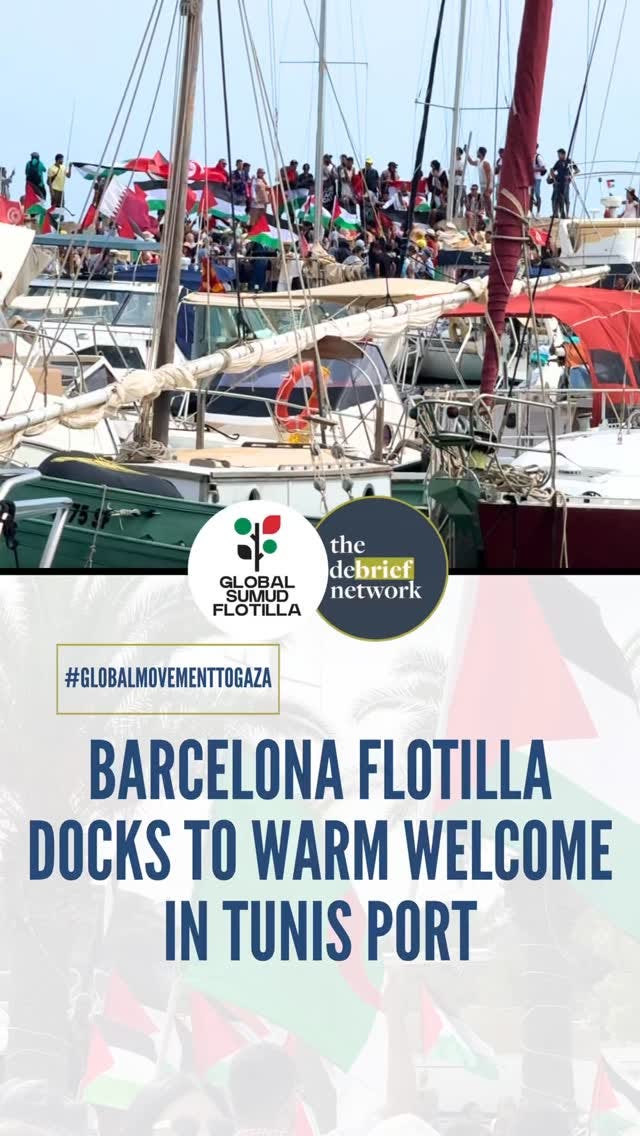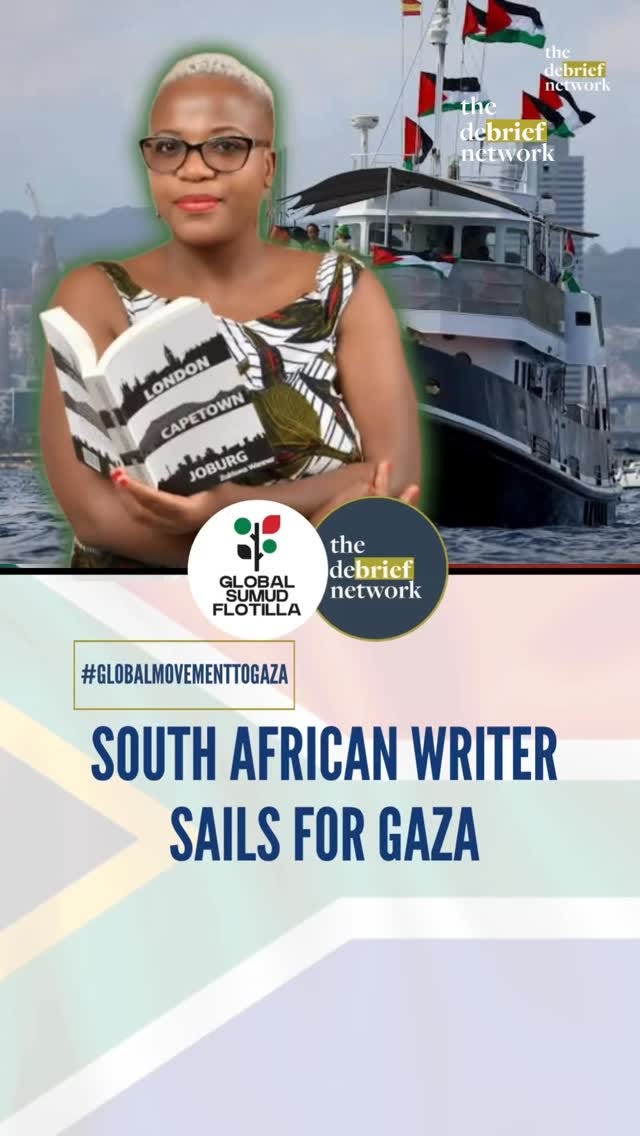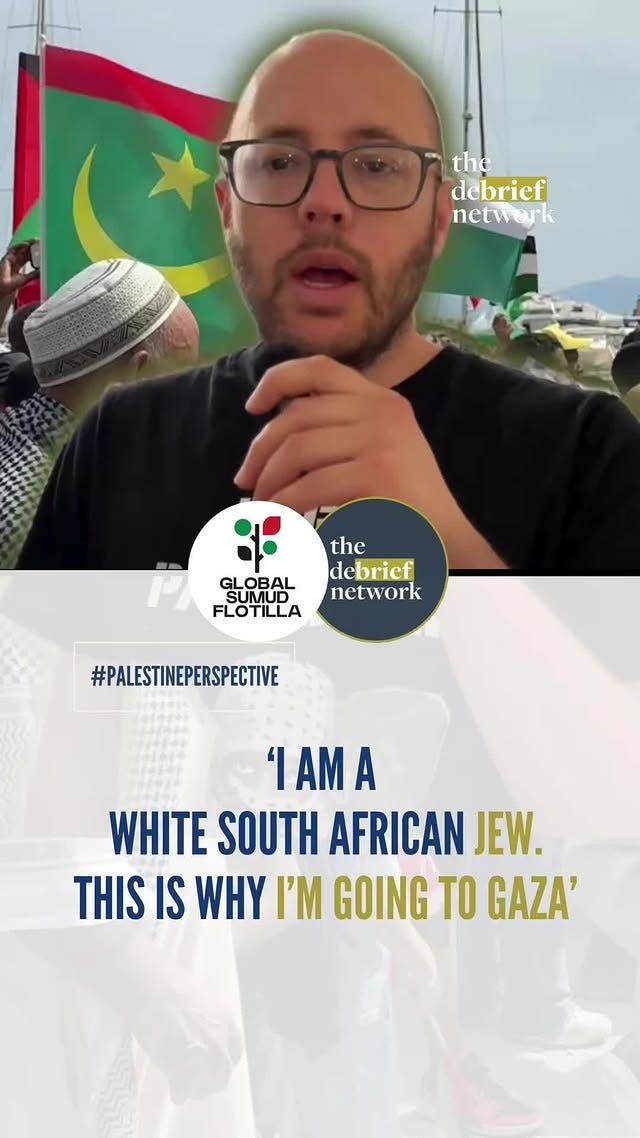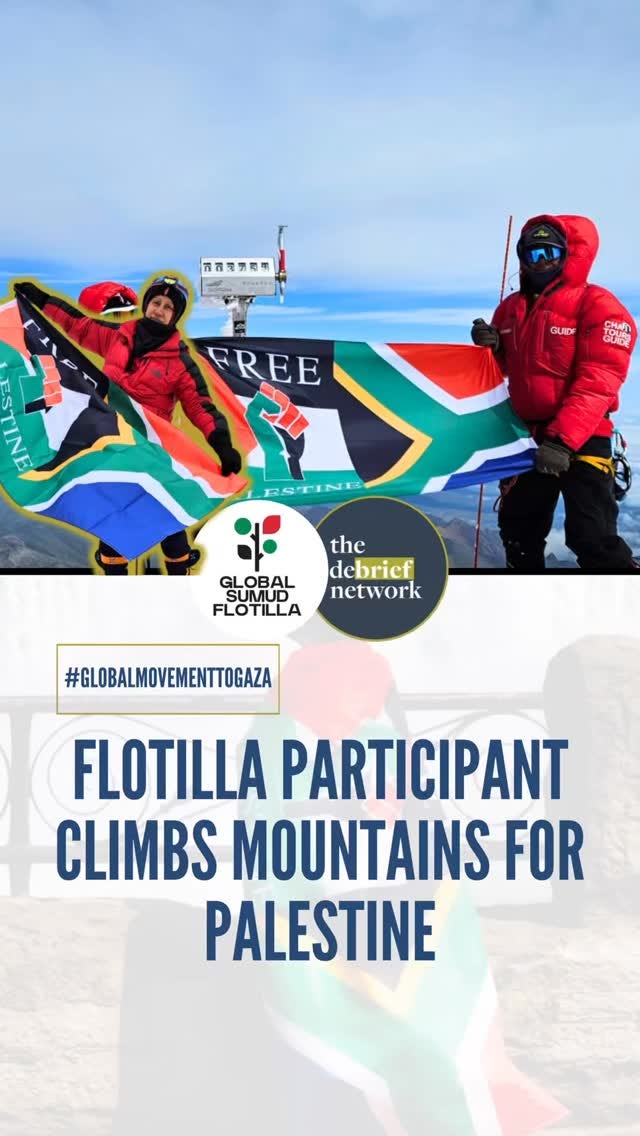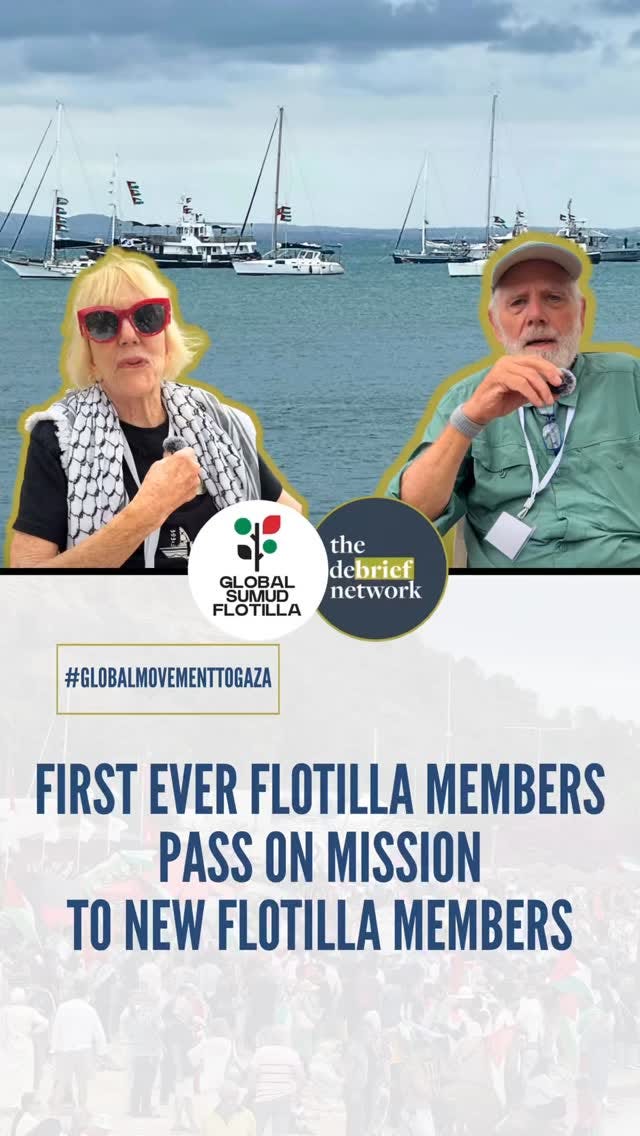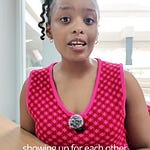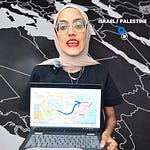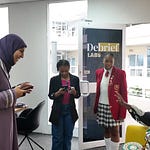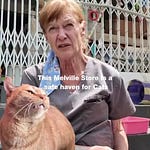It was an extremely hot day in Tunisia, with palm trees swaying in the wind, at the very top of Africa. In the chaos of the city of Tunis, I was darting between yellow taxis, trying to secure my press credentials to cover the departure of the Global Sumud Flotilla. After a frantic run between venues, I finally received my credentials. I decided to quickly record a short video for my Debrief Africa story before heading to the port.
Little did I know, I had chosen a side street directly opposite a police station. I had just started filming, in a street lined with colourful cafés and cats, when I suddenly found myself surrounded by Tunisian police. They took my passport, and after questioning me for two hours, I finally convinced them that I was not live streaming the police station or any other government building.
By then, I was late for the Flotilla’s departure and found myself trying to hail a taxi at peak hour - on the same day most Tunisians were also heading to the port in a show of solidarity with Palestine and the Flotilla. While still trying to get a ride, I bumped into the Spanish delegation of the Flotilla. They too were heading to the port, so we decided to share a taxi. We navigated the chaos of Tunis together, making our way toward the Sidi Bou Said port.
I had come to Tunisia to cover the Global Sumud Flotilla, having previously reported on the Sumud Convoy, which was led by North Africans, and the Global March to Gaza in Egypt in June. What stood out to me was how Africans were not only participating in but leading the global solidarity movement for Palestine. Their voices have been loud, clear, and highly visible.
I found African solidarity with Palestine particularly compelling, especially considering that Africa is currently facing at least three active wars of its own. Yet many Africans continue to care deeply about Gaza and the Palestinian people.
I spoke with Abderrazak Hammad, a Libyan who had taken part in the Sumud Convoy in June and had even been arrested. He explained why Palestine resonates so strongly for Africans:
“We didn't draw the borders of our own country; they drew it for us. We were literally just one big country. We suffered, so we should feel what the Palestinians are going through, maybe more than a lot of other countries. That’s why we should be leading these initiatives, these campaigns, these convoys.”
We eventually made it to the port, after running down a hill with the Spanish delegation, surrounded by the crystal blue Mediterranean Sea and crowds of ordinary Tunisians arriving in huge numbers to bid farewell to the Flotilla. The port was filled with chants of solidarity for Palestine.
The sense of unity, and the importance of the Flotilla and its mission was undeniable. According to Skewering History: The Odious Politics of Counting Gaza's Dead by Dr Richard Hil and Dr Gideon Polya, Israel has killed 680 000 Palestinians in Gaza (as of April 2025), of which 479 000 are children.
I met an Algerian participant, Nacereddine Drici, who told me how Algeria’s colonial history shares many similarities with the Israeli occupation of Palestine. The French occupation lasted over 130 years, marked by land theft, cultural erasure, and brutal military repression. France used genocidal tactics, leading to the deaths of between 500,000 and 1 million Algerians. Drici told me:
“I am Algerian, and we experienced the occupation of the French government. So, we are here to stay and to support Palestinians.”
A Moroccan Flotilla participant, Ali Lakrakbi, also spoke about how Morocco’s colonial past links them to Palestine in a deep and meaningful way. Morocco was occupied by France and Spain in 1912, and Moroccans were brutally suppressed by their occupiers. Lakrakbi told me:
“Morocco was also occupied, and we understand what occupation means, and what it is. So, we should be the first, as Moroccans, as African countries, to go on this Flotilla.”
After speaking to participants from Tunisia, Libya, Algeria, Morocco, and Mauritania, it was clear that they were deeply committed to breaking the siege on Gaza. These were ordinary people who had left behind their homes, jobs, families, and even their pets, because they could no longer sit back while men, women, and children in Gaza are being starved.
Hammad said it best:
“As Africans in general, Libyans, Tunisians, Algerians, Mauritanians, Moroccans, South Africans, we all faced occupations in our history. We all fought for our independence, for our peace, for our right to live. Palestine is closer to us, because we share history with it, we share the struggle. That’s why we should fight for our brothers in Palestine, for their liberation, for their freedom, for their right to live, and for their right to have basic human rights.”
After speaking with so many Africans preparing to join the Flotilla, I realised that their solidarity comes from a shared experience of colonial occupation, resistance against injustice, and the ongoing fight to define one’s own identity.
The story of Palestine, with its land appropriation, ethnic displacement, and cultural suppression by Israel, is a story that Africans know all too well. From apartheid South Africa to colonial Libya, Algeria, and Morocco, African nations see in Palestine a reflection of their own history and, in some cases, their present.
For many Africans, Palestine is not someone else’s war, it is a part of the same global struggle. A struggle against occupation, and for the right to live with dignity.





